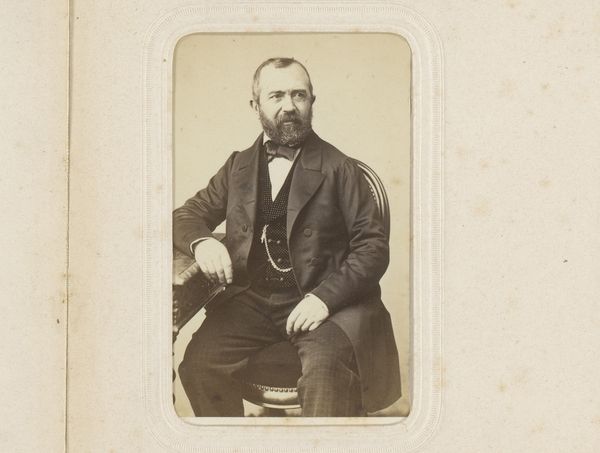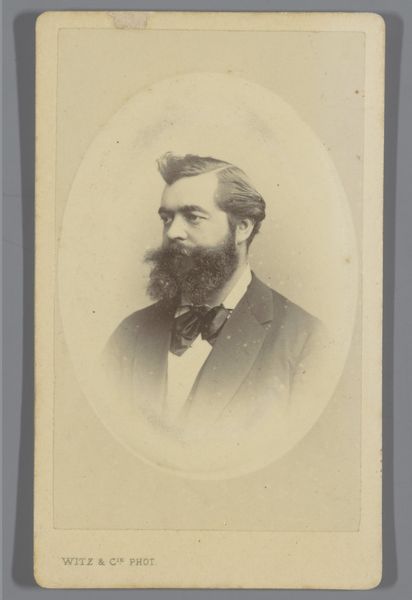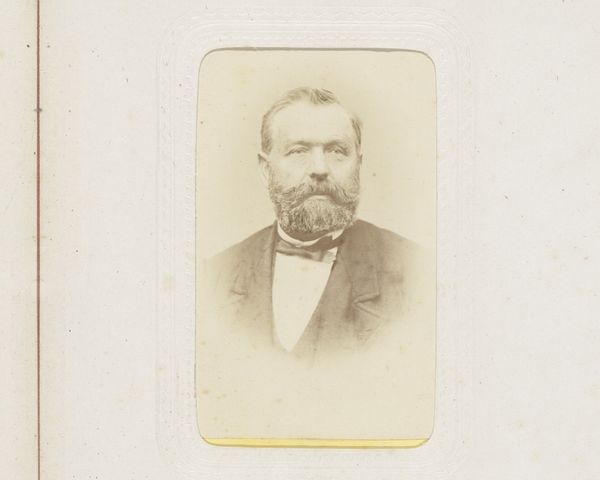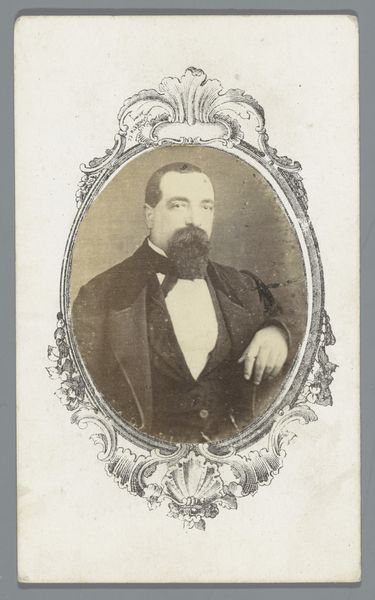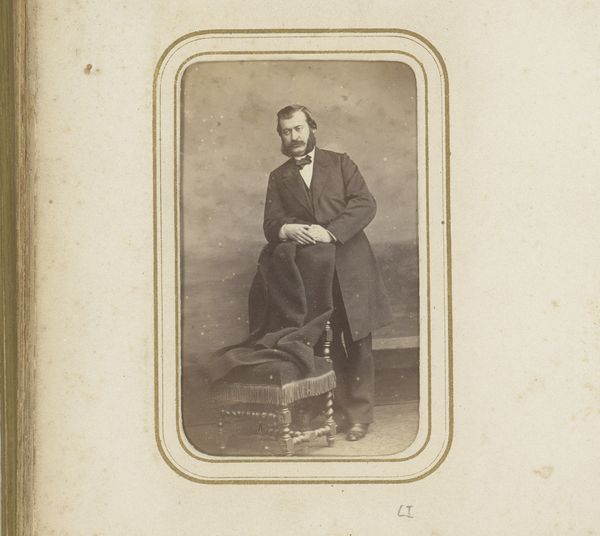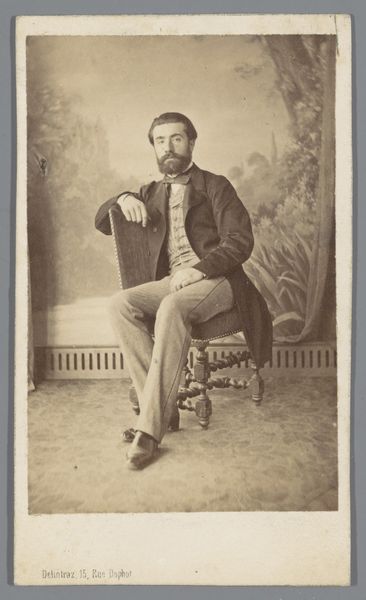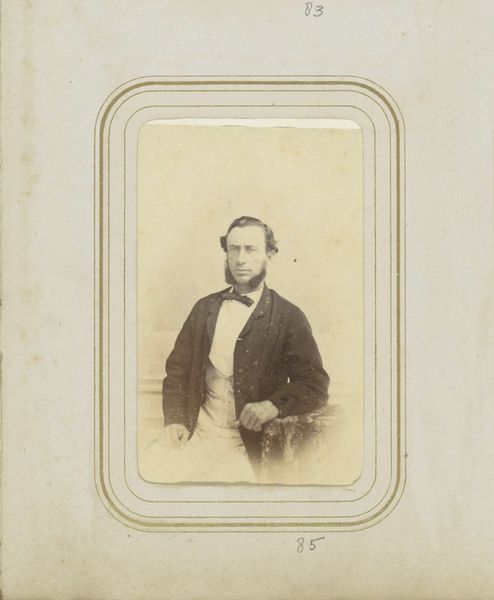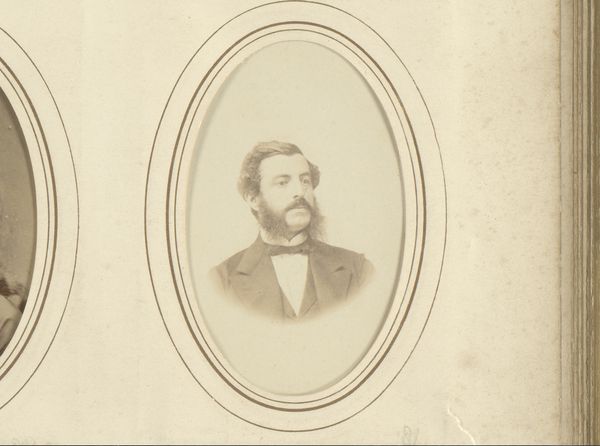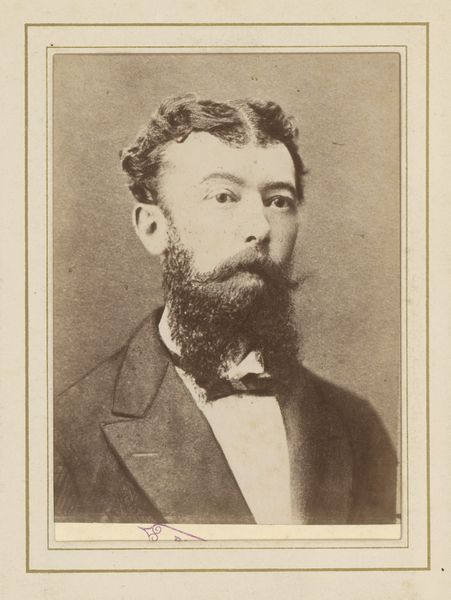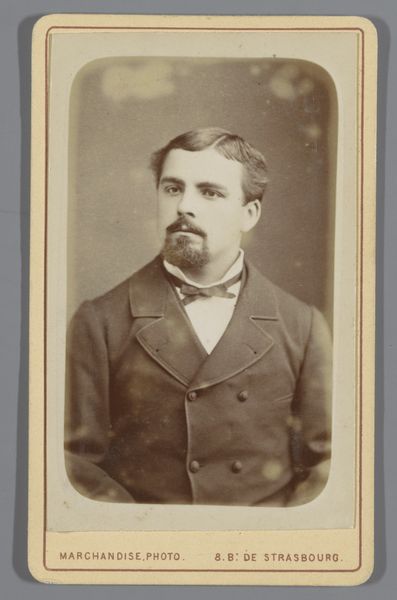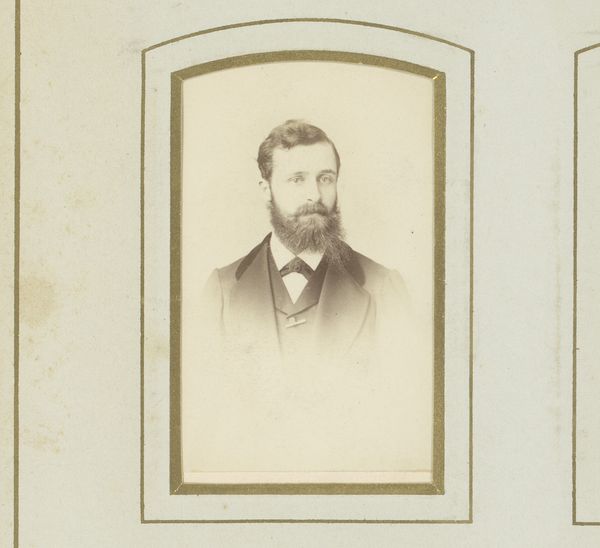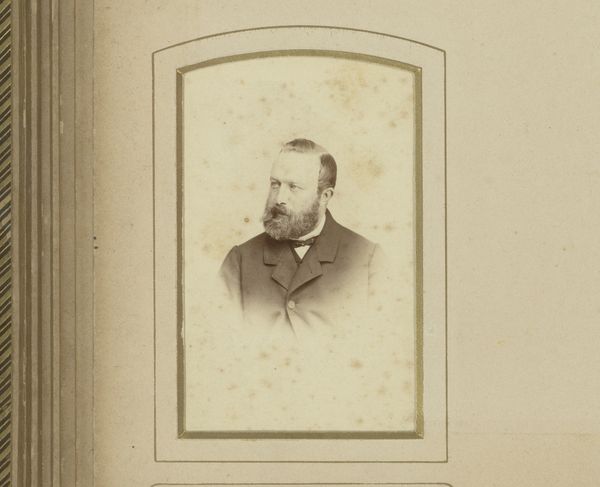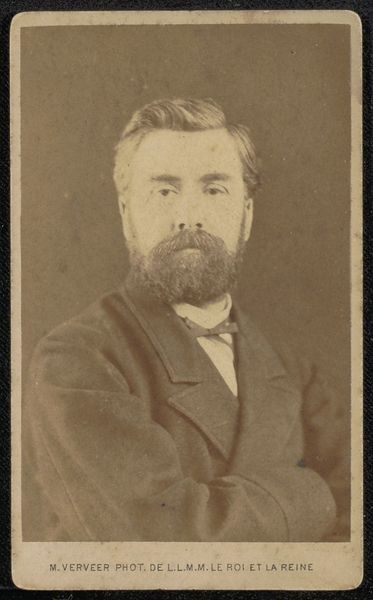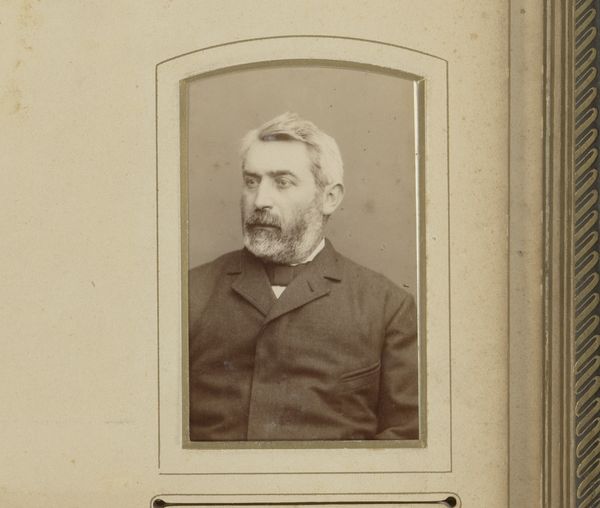
photography, gelatin-silver-print
#
portrait
#
aged paper
#
toned paper
#
earth tone
#
16_19th-century
#
charcoal art
#
photography
#
brown and beige
#
brown beige
#
gelatin-silver-print
#
19th century
#
warm-toned
#
neutral brown palette
#
brown colour palette
#
realism
Dimensions: height 84 mm, width 54 mm
Copyright: Rijks Museum: Open Domain
Curator: This is "Portret van een zittende man met snor en baard", a gelatin silver print from sometime between 1860 and 1900. Editor: It has a lovely, melancholic air to it, almost sepia-toned despite being a silver gelatin print. The way the light catches his face… It’s quite evocative. Curator: Note how the photographer utilized a limited tonal range to subtly model the sitter's form. This monochromatic palette focuses our attention on the subtle variations of light and shadow, lending the piece its understated gravitas. The man’s gaze confronts us directly. Editor: That gaze, it strikes me, embodies a complex mix of weariness and resilience. Consider the social constraints of the era—what freedoms, or lack thereof, might have shaped his world and demeanor. The beard, meticulously groomed, speaks of a certain social standing, but the eyes hint at a deeper narrative, perhaps of struggles and expectations. How was masculinity defined at that moment in time? Curator: Intriguing points. The formal composition, with its careful arrangement of figure and ground, however, speaks to the influence of academic portraiture. Observe the framing—the deliberate cropping and positioning of the sitter creates a sense of restrained elegance, quite proper, according to accepted models of representation. Editor: Elegance is apparent, though in our contemporary view, can’t we see it less as "restraint" and more as enforced decorum? Doesn’t the clothing also hint at economic status, reminding us of the vast inequalities of the period? We must ask ourselves, whose stories are told, and whose are left unheard within these images? Curator: Indeed, such questions provide critical interpretations that challenge the dominant modes of appreciation. The success of this piece exists in how these formal components contribute to a unified, aesthetic experience. The use of light to delineate form, the nuanced interplay of shadows... Editor: It encourages a conversation beyond aesthetics, revealing much about societal power structures. It gives me cause for reflection regarding our inherited narratives. Curator: An appropriate conclusion to draw, encouraging further dialogue beyond the art historical timeline. Editor: I fully agree. These conversations give works lasting vitality.
Comments
No comments
Be the first to comment and join the conversation on the ultimate creative platform.
